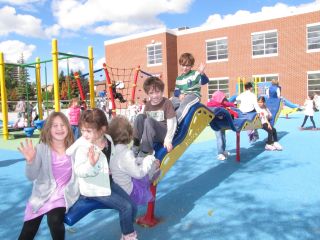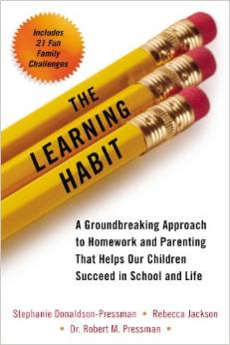
Play
Exercise and the Common Core State Standards
Research shows raising the academic standards means children need more excercise
Posted August 26, 2014
Note: The following case study is an excerpt from The Learning Habit by Stephanie Donaldson-Pressman, Rebecca Jackson, and Dr. Robert Pressman by arrangement with Perigee, a member of Penguin Group (USA) LLC, a Penguin Random House Company, Copyright © 2014 by Good Parent, Inc.
“If we are raising the academic standards for our children, then exercise needs to increase as well.”—Alexis Wooten, fifth grade teacher

Alexis Wooten is a middle school teacher who was interviewed for The Learning Habit case studies. Her interview, along with hundreds of others, appear in The Learning Habit, published next week by Perigee. The book is based on a groundbreaking study conducted by researchers from Brown University’s Alpert School of Medicine, Brandeis University, Children’s National Medical Center and New England Center for Pediatric Psychology.
Alexis teaches fifth grade, and started incorporating curriculum recommendations from the Common Core State Standards (CCSS) for mathematics into her classroom last year. She, along with dozens of other teachers interviewed for The Learning Habit, had some helpful suggestions for parents and educators.
“I’ve never seen kids so mentally drained as they have been this year with the mathematics curriculum. They are fully capable of understanding this material, but it is enormously taxing,” she said.
Alexis had some unusual advice for parents. “When your children get home, have them exercise. Run around and play sports. They need physical activity; I can’t stress this enough."
Her advice to other teachers was simple; exercise is homework.
“They are working so hard during the day—in a way they simply weren’t before. When they get home, they need to move. This new material is truly mentally exhausting and they get very little exercise at school. If we are raising the academic standards for our children, then exercise needs to increase as well. They are closely connected.”
Work Hard, Play Hard!
In fact, new research seems to back Ms. Wooten’s observations. Higher-intensity activity has biological effects on the brain that improve academic performance.
Because researchers in England were willing to run around measuring sweaty children, statisticians have been provided with valuable information on physical activity and the developing brain. Nearly 5,000 students participated in a study that measured the biological effects of exercise on children’s achievement in school.
The British team measured both duration and intensity of 11-year-old students’ daily physical activity for a period of three to seven days, using a device worn on the kids’ belts. Both boys and girls got fewer than the recommended 60 minutes for daily exercise. The boys clocked 29 minutes, on average, and the girls, 18 minutes. Those who exercised the most did better in national academic exams. At age 11, the kids who exercised most had better performance in three subjects: math, science, and English. The activity especially helped the girls raise their science grades. At ages 13, 15, and 16, the link between more exercise and better grades held.
Interviews conducted for The Learning Habit showed additional benefits to assigning exercise as a part of homework. Participation encourages time management, prioritizing, tenacity, and willingness to act in the best interests of the team—traits that build character, grit, and self-esteem.

LEARN MORE: The Learning Habit is packed with hundreds of case studies and information from nearly 50,000 parents who participated in the groundbreaking research study. Order your copy today!
SIGN UP today to gain instant access to the dashboard on The Learning Habit study (the largest data set in history on family routines and habits.)
*********
References:
Alexandra Sifferlin, “Study: More Active Teens Get Higher Test Scores,” Time, October 22, 2013, healthland.time.com/2013/10/22/study-more-active-teens-get-higher-test-scores

